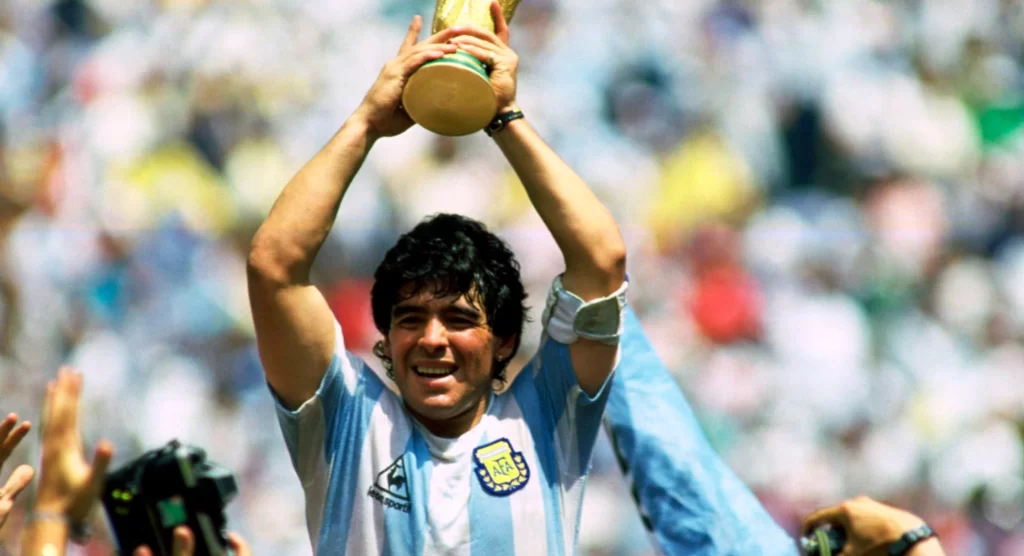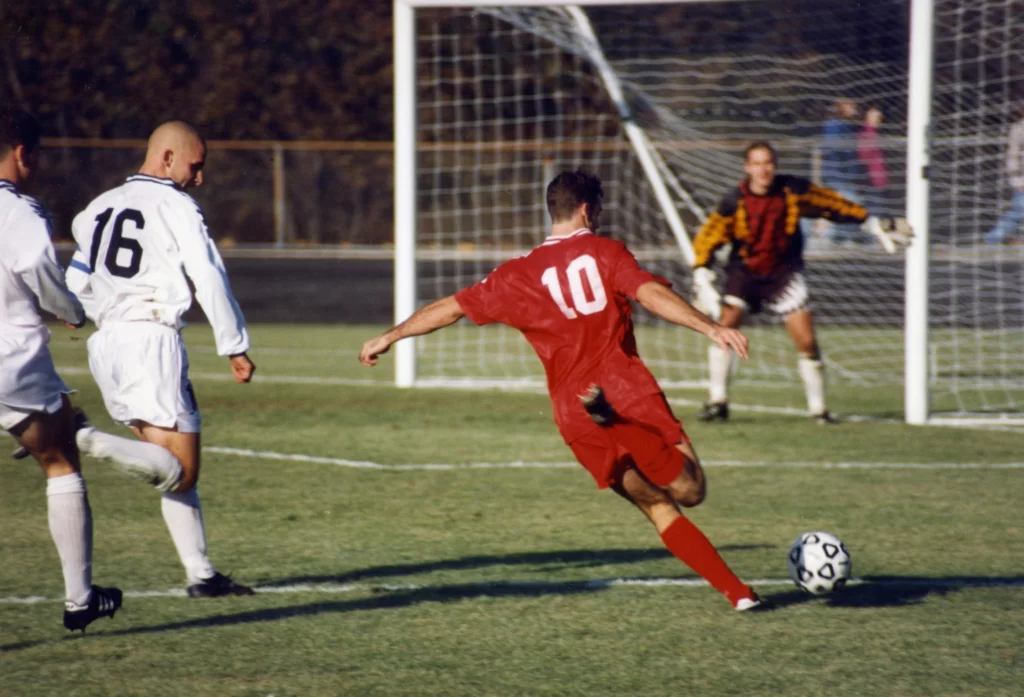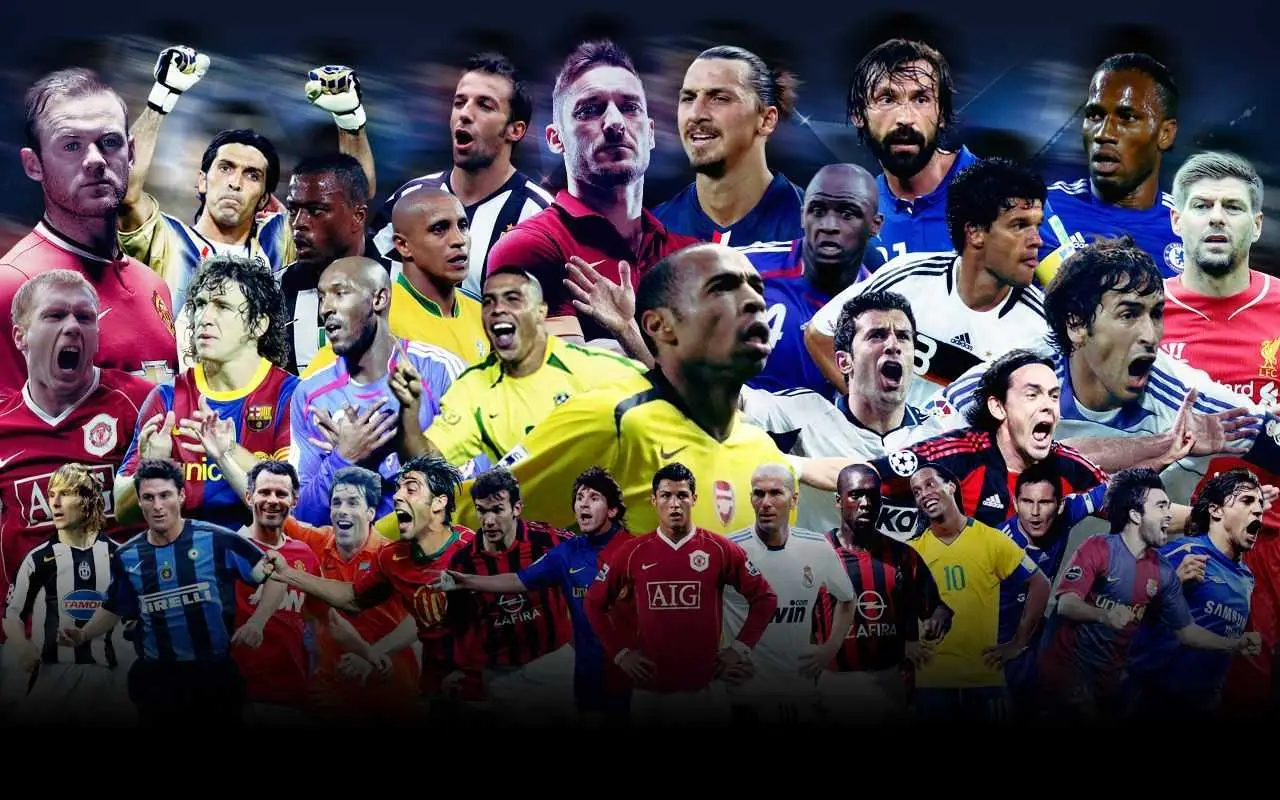Who has soared to the top of football Olympus? The most successful footballers – people who have been able to change the game, inspire generations, and make the sport even more beautiful and exciting. Whose names will forever remain in history? Let’s tell you in our material.
Lionel Messi – mastery in every movement
Lionel Messi was born in 1987 in Rosario, Argentina. Since childhood, he was singled out for his extraordinary football abilities, but because of a problem with growth hormone, his physical development has slowed down a lot. ‘Barcelona’ offered to pay for the treatment and moved the boy to Spain. Thus began the journey of one of the great footballers of our time. Messi quickly broke into the youth team and soon made his debut in the main team, and the first records of the footballer did not wait: he became the youngest player who scored for the club in La Liga.

Legendary achievements and records
Lionel Messi became the owner of a record number of Golden Balls – eight as of 2023, and also set an absolute record for the number of goals in a calendar year (91). Messi rewrote La Liga history by becoming the all-time top scorer and the league’s top assist man. His prowess in the Champions League has also given the world some unforgettable moments, including four goals against Arsenal in a single match in 2010.
Messi and his impact on football
Messi’s ability to hold the ball up, outmanoeuvre opponents and be part of the team makes many only dream of similar skills. Young athletes are keen to adopt his incredible technique and a philosophy that emphasises teamwork above all else. Messi changed the very tactics and perception of the sport: the “false nine”, where he often operated, became a new fulcrum in attacks, something that captured the attention of the tactical geniuses of the day.
Cristiano Ronaldo – the epitome of perseverance and success
Cristiano Ronaldo was born on the island of Madeira in 1985. The path to the top was difficult and required incredible efficiency. At the age of 12, he moved to Lisbon to join Sporting’s academy, where he became a star of the youth squad. The athlete soon moved to Manchester United, where his international career began. Ronaldo is characterised by his dedication and incredible work capacity, which brought him to the elite of the world stage. It is these qualities that make him one of the most successful footballers.
Records and Golden Balls
Ronaldo is the Champions League record holder for goals and assists, as well as the first to win the Golden Ball with three different clubs. As a member of Real Madrid, he scored in finals and semi-finals, dragging the team when needed. In the Portuguese national team, Ronaldo became a true leader and led the players to victory at Euro 2016, which was an achievement at the world level.
Impact on society and sport
Ronaldo is known not only for his footballing exploits, but also for his work off the pitch. He is actively involved in charity projects and helps children around the world as a goodwill ambassador. His openness and activism off the pitch has made him one of the most popular and recognisable people in the world. He inspires millions of people with his personal qualities, making him a significant figure in the list of the best footballers of all time.
Diego Maradona is the god of football and his legacy
 Diego Maradona was born in Buenos Aires in 1960 and grew up in a poor neighbourhood where his talent was immediately recognised. He made his debut for Argentinos Juniors at the age of 15 before moving to Boca Juniors, where he became a national hero. His performance at the 1986 World Cup made history: Many associate the term football legend with Maradona.
Diego Maradona was born in Buenos Aires in 1960 and grew up in a poor neighbourhood where his talent was immediately recognised. He made his debut for Argentinos Juniors at the age of 15 before moving to Boca Juniors, where he became a national hero. His performance at the 1986 World Cup made history: Many associate the term football legend with Maradona.
‘Hand of God’ and other great moments
The match against England in 1986 became one of the most famous episodes in history. The goal with the ‘hand of God’ and another, considered the greatest goal of the century, came to symbolise the skill and cleverness of the sportsman. Maradona proved that individual style and passion can lead a team to victory. His influence is a lesson in creativity and perseverance for all generations. The most successful footballer in the world is not always defined by the number of trophies: Sometimes it’s a contribution to the culture and spirit of the discipline, and Maradona is a prime example.
Pelé – The king of football and his greatness
Pelé, real name Edson Arantes do Nascimento, was born in Tres Corazones, Brazil, in 1940. He developed a passion for football at a young age and played barefoot with homemade balls. He made his debut for Santos at the age of 15 and became an almost instant star thanks to his incredible technique and scoring instincts. At the age of 17, Pelé led the Brazilian national team to its first World Cup victory in 1958 and became the youngest world champion in history – a true icon among successful footballers.
World records and titles
Pelé won the World Cup three times (1958, 1962, 1970) – a record that has never been equalled. His ability to score goals from different positions, hold the ball up and work as part of a team made him the ideal player of his time. In a career that spanned both official and unofficial matches, he scored over 1,000 goals and his achievements are unrivalled by many modern footballers.
Influence on the game and popularisation of football
Pele’s game made football truly international. The athlete became a symbol of success for the whole of Brazil and inspired millions of children who played in the streets of the favelas. Through his contribution to the popularisation of football, Pelé became a cultural phenomenon.
Zinedine Zidane – French elegance on the football pitch
Zinedine Zidane was born in Marseille in 1972 to Algerian parents. His journey began by playing on the streets of the city, where he demonstrated his exceptional talent and technique. He began his career at Cannes, then moved to Bordeaux and was soon called up to the French national team. Right from the start of his career, Zidane became one of the most successful footballers in France.
Important successes and major victories
Zidane gave the world unforgettable moments, such as two headers in the 1998 World Cup final, with which he led France to a historic victory. He also won the Champions League with Real Madrid and became one of the Galactic’s most important players. His technique, skilful ball possession and elegant passes are still remembered by fans today.
Zidane’s legacy and coaching career
After his playing career, Zidane became a coach and enjoyed success with Real Madrid, winning three consecutive Champions League titles from 2016 to 2018. His coaching style is as elegant as his play on the pitch: he emphasised teamwork and individual player development. His legacy lives on in every young athlete who dreams of great things, and his achievements continue to inspire and confirm his status as the most successful footballer in French sporting history.

The most successful footballers: Conclusion
 The most successful footballers have not only achieved incredible success – they have changed the game forever and made it more entertaining and interesting for billions of people around the world. Their influence extends far beyond the pitch and the stands, inspiring future generations to do great things. Watch their great goals and moments and get a flavour of what real football is all about.
The most successful footballers have not only achieved incredible success – they have changed the game forever and made it more entertaining and interesting for billions of people around the world. Their influence extends far beyond the pitch and the stands, inspiring future generations to do great things. Watch their great goals and moments and get a flavour of what real football is all about.
 en
en  de
de  ar
ar  es
es  nl
nl  hi
hi  fr
fr  it
it  pt
pt  el
el 









